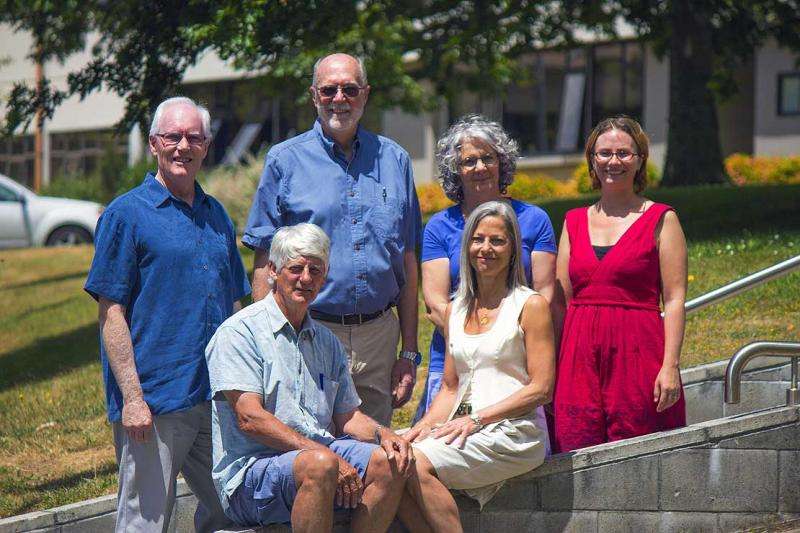Professor James Chapman, Distinguished Professor Bill Tunmer, Chris Braid, Dr Alison Arrow, (sitting) Dr Keith Greaney and Dr Jane Prochnow.
Education Minister Hekia Parata says some of the country's youngest students are the focus of literacy research by experts from Massey University.
Professor James Chapman, Distinguished Professor Bill Tunmer and Dr Alison Arrow have designed the Massey University Early Literacy research project to broaden the range of literacy teaching strategies and complement existing ones for teachers.
Ms Parata says the project is focused on establishing successful outcomes for children at new entrant level, especially those that may need extra support such as Māori, Pasifika, and children from low socio-economic backgrounds.
The $1.25m three-year project is funded by the Ministry of Education and involves 25 schools in Wellington, Hutt Valley, Wairarapa, Whanganui, Manawatu, Tararua, Taranaki, Horowhenua, and Kapiti.
"This project takes an evidence-based approach, which is essential to finding ways to support the individual learning needs of our young people so that all kids achieve success in literacy, and those who are already successful can extend their levels of achievement," Ms Parata says.
"The children's skill development is taken into account in deciding which approach is right for them. Some children will receive targeted literacy instruction that may involve methods such as phonemic awareness and alphabetic coding. Other children, who already have basic reading skills, will receive instruction that recognises their developmental progress."
Another important aspect of the project is the use of a comparison group involving a further 14 schools so that researchers can accurately measure, assess and refine the impact of the supplementary literacy instruction.
"Reading is an essential skill necessary for success in every aspect of life," Ms Parata says. "This project will provide valuable insights into the best teaching methods to achieve better literacy learning outcomes for all Kiwi kids."
Professor James Chapman, from Massey's Institute of Education, says ensuring young people – whatever their economic, ethnic or language background – can read, and thus learn, boils down to a social equity issue. "Just saying that 'most' can read is not good enough. In a responsible democracy, we need to make sure all children get the basics in literacy.
"Being literate is probably the most important goal of schooling. Reading is basic to success in almost every aspect of the school curriculum. It's a prerequisite skill for nearly all jobs, and is the primary key to lifelong learning."
Provided by Massey University




















